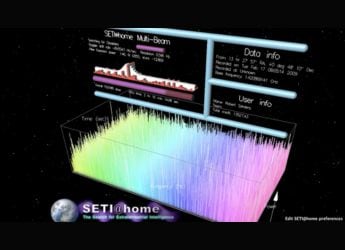- Home
- Science
- Science News
- 2022 Tonga Eruption: Public Observations and Scientific Data Illuminate Hunga Volcano's Global Impact
2022 Tonga Eruption: Public Observations and Scientific Data Illuminate Hunga Volcano's Global Impact
Data from the Hunga eruption near Tonga in 2022 offers unique insights from both public and scientific perspectives.

Photo Credit: Unsplash/NASA
The eruption created shockwaves that circled the globe, detected by sensors as far away as Iceland.
On January 15, 2022, the Hunga volcano near Tonga erupted in an explosive event that sent shockwaves across the planet. The eruption happened around the same time as Cyclone Cody. It created a shockwave powerful enough to trigger low, booming sounds that were heard from New Zealand to Alaska. It also caused a tsunami that impacted distant coastlines, marking the eruption as one of the most impactful volcanic events in recent memory.
Public Observations Fill Gaps in Scientific Data
Following the eruption, GNS Science, New Zealand's geological agency, invited residents to share their experiences. More than 2,100 people responded, reporting everything from rumbling sounds and pressure in their ears to windows rattling and animals reacting to the disturbance. By comparing these accounts with data from seismic and atmospheric sensors, scientists confirmed that these firsthand experiences mirrored instrument readings closely.
According to Dr. Emily Lane, Senior Scientist at GNS, the information provided by people across New Zealand helped researchers see patterns in how the sound traveled across the country. Most reports of loud “booms” came from the North Island, suggesting the pressure wave from the eruption traveled from north to south. The details in these reports offered scientists insights that even precise instruments might not capture alone.
New Directions for Disaster Preparedness
The crowdsourced observations also revealed how people responded when they heard the booming sounds. Many checked on family or went outside to assess the situation, while others reached out to friends to make sure they were safe. Several respondents mentioned remembering previous volcanic eruptions, showing how past experiences can influence responses to natural events.
Researchers at GNS are now exploring ways to use these kinds of reports in tracking geohazards, like earthquakes and volcanic eruptions. Combining public observations with scientific data could enhance future disaster preparedness, giving communities an additional layer of awareness and response to support public safety and resilience.
Catch the latest from the Consumer Electronics Show on Gadgets 360, at our CES 2026 hub.
Related Stories
- Samsung Galaxy Unpacked 2025
- ChatGPT
- Redmi Note 14 Pro+
- iPhone 16
- Apple Vision Pro
- Oneplus 12
- OnePlus Nord CE 3 Lite 5G
- iPhone 13
- Xiaomi 14 Pro
- Oppo Find N3
- Tecno Spark Go (2023)
- Realme V30
- Best Phones Under 25000
- Samsung Galaxy S24 Series
- Cryptocurrency
- iQoo 12
- Samsung Galaxy S24 Ultra
- Giottus
- Samsung Galaxy Z Flip 5
- Apple 'Scary Fast'
- Housefull 5
- GoPro Hero 12 Black Review
- Invincible Season 2
- JioGlass
- HD Ready TV
- Laptop Under 50000
- Smartwatch Under 10000
- Latest Mobile Phones
- Compare Phones
- Tecno Spark Go 3
- iQOO Z11 Turbo
- OPPO A6c
- Samsung Galaxy A07 5G
- Vivo Y500i
- OnePlus Turbo 6V
- OnePlus Turbo 6
- Itel Zeno 20 Max
- Lenovo Yoga Slim 7x (2025)
- Lenovo Yoga Slim 7a
- Lenovo Idea Tab Plus
- Realme Pad 3
- Garmin Quatix 8 Pro
- NoiseFit Pro 6R
- Haier H5E Series
- Acerpure Nitro Z Series 100-inch QLED TV
- Asus ROG Ally
- Nintendo Switch Lite
- Haier 1.6 Ton 5 Star Inverter Split AC (HSU19G-MZAID5BN-INV)
- Haier 1.6 Ton 5 Star Inverter Split AC (HSU19G-MZAIM5BN-INV)
-
 Ustaad Bhagat Singh OTT Release: When, Where to Watch Harish Shankar's Telugu Action Drama Film
Ustaad Bhagat Singh OTT Release: When, Where to Watch Harish Shankar's Telugu Action Drama Film
-
 Bha Bha Ba is Now Streaming: All You Need to Know About This Malayalam Comedy Thriller Film
Bha Bha Ba is Now Streaming: All You Need to Know About This Malayalam Comedy Thriller Film
-
 World’s Biggest Alien Search Enters Final Stage With 100 Mystery Signals
World’s Biggest Alien Search Enters Final Stage With 100 Mystery Signals
-
 NASA Pulls Out Artemis II Rocket to Launch Pad Ahead of Historic Moon Mission
NASA Pulls Out Artemis II Rocket to Launch Pad Ahead of Historic Moon Mission










